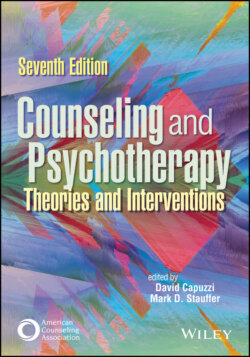Читать книгу Counseling and Psychotherapy - Группа авторов - Страница 74
Chapter 2
Multicultural and Social Justice Counseling Through Relational-Cultural Theory
ОглавлениеThelma Duffey and Shane Haberstroh
By its very nature, counseling is situated within myriad relational, social, and cultural systems. Clients and counselors enter the counseling space with their respective worldviews, cultural traditions, histories of oppression and liberation, and relational strategies that can lead to connectedness or isolation (Jordan, 2018; Jordan & Duffey, 2020; Peters & Luke, 2021). Counselors can serve as agents of healing and connection during trying and destabilizing times as the world grapples with a growing focus on injustices and indignities exacted against marginalized people; the perpetration of violence abroad and close to home; and economic, political, and public health crises. Relational-cultural theory (RCT) provides us with a progressive, feminist, multicultural, and social justice–focused counseling theory (Trepal & Duffey, 2016; Jordan, 2018). RCT offers counselors and clients a new way to see psychological distress and healing as relationally and contextually driven. This requires a careful examination of counselors’ worldviews, points of privilege, awareness of their social position, and how counselors share power in their work with clients.
Counselors continue to have much work to do in this regard. Hook et al. (2016) found that among 2,112 clients of color, 81% indicated that they experienced at least one microaggression from their counselor. Exploring the interrelated effects of counselors’ multicultural competency and cultural humility, Hook et al. found that a lack of counselor humility predicted microaggressions in client-counselor dyads for both racially and nonracially matched pairs. When clients experience these types of disconnections, their worlds and experiences may seem to matter less, and their voice and truth become marginalized and unheard. The implications of these results speak to the need for counselors to work from a theoretical framework that distinctly addresses how power, culture, and relationship flow in the counseling process while providing counselors and clients with a framework to understand and create mutually supportive, authentic, and growth-promoting relationships (Jordan, 2018). In this chapter, we share how RCT provides a conceptual roadmap and counseling philosophy that helps us examine the centrality of relationships, culture, social justice, and power.
